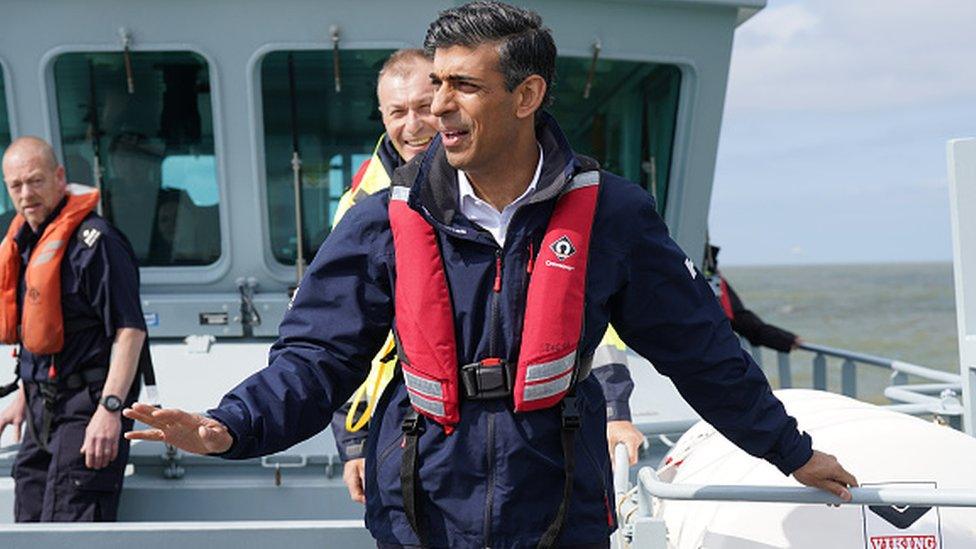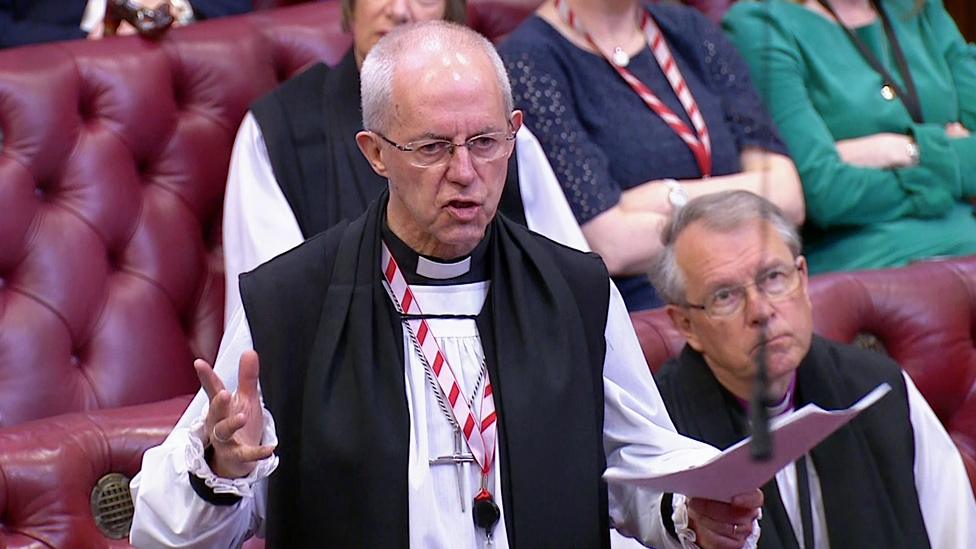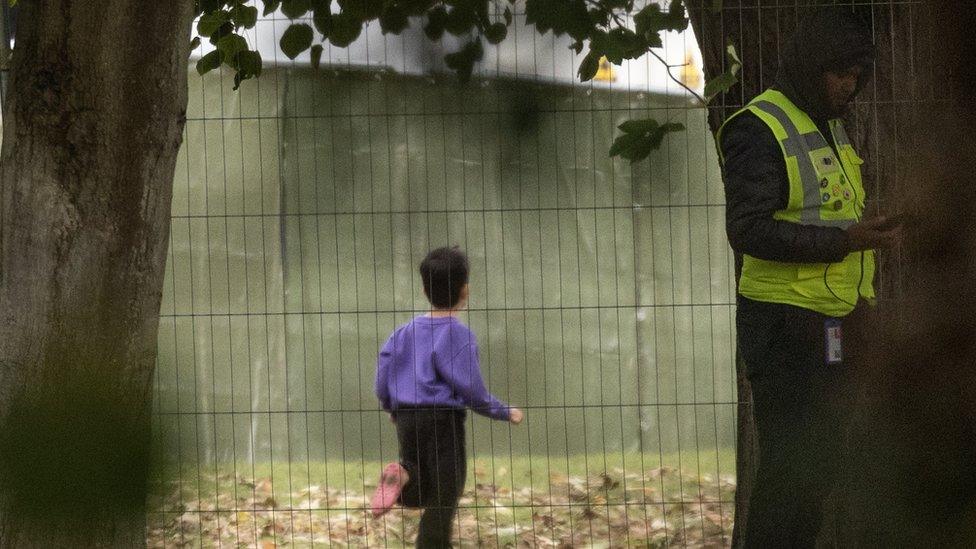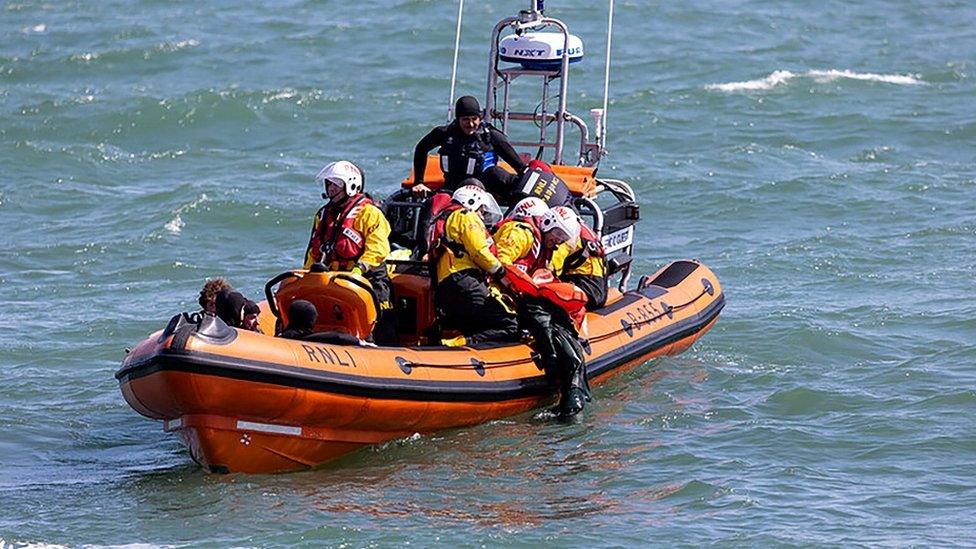Migration bill climbdown on detention limits for children
- Published

The illegal migration bill is currently passing through Parliament
The UK government has offered to limit detention periods for children and pregnant women to get its migration bill passed.
MPs will vote later on 20 changes backed by peers in the House of Lords.
While Conservative MPs are expected to reject most changes, ministers have made concessions to get the bill through Parliament.
The bill is central to Prime Minister Rishi Sunak's pledge to stop small boats crossing the English Channel.
Speaking to reporters on Tuesday ahead of a Nato summit, he said his plan was "starting to work" and he "always said it would take time".
He added that he always expected crossings "would rise in the summer," after latest figures showed more than 1,000 migrants made the dangerous journey over two days last week.
The Illegal Migration Bill is the government's attempt to deter people from making the crossing by toughening up the rules and conditions around seeking asylum.
The bill would place a legal duty on the government to detain and remove migrants arriving in the UK illegally, either to Rwanda or another "safe" third country.
The bill originally removed the existing time limits on how long unaccompanied children and pregnant women could be detained, but they were reinstated by peers in the Lords.
Now ministers have proposed an amendment to allow immigration bail to be granted after eight days to unaccompanied children in detention.
The government has also agreed to keep the current limit on detaining pregnant women at 72 hours.
Some of the government's critics over the child detention issue have said they will accept the eight-day compromise, but intend to push for more concessions on the quality of accommodation provided.
Race to recess
Another new change means the duty on the home secretary to remove anyone entering the UK without permission will only apply when the legislation becomes law, not retrospectively.
With Parliament due to break for summer at the end of next week, Home Secretary Suella Braverman said the amendments would help the "crucial" new law pass "swiftly".
It would also "send a clear message that the exploitation of children and vulnerable people, used by criminals and ferried across the Channel, cannot continue," she added.
The government's efforts to curb the number of small boats crossing the Channel have been hampered in Parliament and the courts.
A plan to house asylum seekers on a barge moored in Dorset has been delayed.
And the government's policy of sending migrants to Rwanda is set for a legal battle in the Supreme Court.
On Monday, a senior Home Office official confirmed the department was paying to keep nearly 5,000 beds empty across the country, in case a sudden influx of migrants caused overcrowding at detention centres.
The government has stressed it remains committed to its plan to remove migrants to Rwanda, and has said it will challenge a Court of Appeal ruling last week that this was unlawful.

Sign up for our morning newsletter and get BBC News in your inbox.

Related topics
- Published5 July 2023

- Published3 July 2023

- Published29 June 2023
